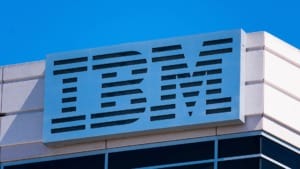Apple releases vital macOS Sequoia update ahead of upcoming Tahoe 26 launch
Apple releases macOS Sequoia 15.6 with a vital bug fix as it prepares for the launch of macOS Tahoe 26 later this year.

Apple has released a new software update for Mac users, providing a critical fix ahead of the full transition to its next-generation operating system, macOS Ventura 13. Apple has not yet announced the release of macOS Tahoe 26. While excitement continues to build for the upcoming OS, Apple is not yet finished refining its current version, with macOS Sequoia 15.6 now available to download.
Table Of Content
Critical bug fixed in macOS Sequoia 15.6
The latest version of macOS Sequoia addresses a serious issue that affected users attempting to restore devices through DFU (Device Firmware Upgrade) mode. According to reports from 9to5Mac, the previous version of Sequoia had a flaw in Finder and Apple Configurator that prevented successful device restoration via DFU mode. This failure could render devices unusable or “bricked” if the process did not complete correctly.
DFU mode is typically used by advanced users or technicians as a more direct alternative to recovery mode when restoring Apple devices. Although the problem is unlikely to affect the average user, Apple recommends that all users update to version 15.6 to avoid any risk of encountering the bug. Those who do not plan to use DFU mode can remain safe on version 15.5, but updating is still recommended for peace of mind and long-term stability.
This update may be among the final releases for macOS Sequoia, as Apple prepares to shift its focus entirely to macOS Tahoe 26. Sequoia has been a reliable platform, but the forthcoming OS is expected to introduce major enhancements, particularly in gaming and multitasking.
What to expect from macOS Tahoe 26
macOS Tahoe 26 is currently in public beta and is due for full release later this year. The operating system introduces a suite of features designed to enhance the overall Mac experience, with a notable emphasis on gaming performance and productivity tools.
New capabilities include MetalFX Frame Interpolation, which helps deliver smoother graphics, and a built-in Game Overlay that enhances in-game experiences. Apple is also introducing an upgraded Game Porting Toolkit, designed to help developers bring high-end titles to macOS more easily.
These additions align with Apple’s ongoing push to establish Macs—particularly those running its in-house M-series chips—as legitimate platforms for gaming. Notably, recent titles such as Cyberpunk 2077 and the Resident Evil 4 remake are now available on Mac, marking a significant shift from earlier years when gaming on macOS was considered a niche pursuit.
Macs are becoming more appealing to gamers
Apple’s increasing attention to the gaming sector has caught the interest of long-time Windows users and gamers who previously overlooked MacBooks for their gaming needs. While traditional gaming laptops still dominate the market, Apple’s M-series MacBooks are gaining traction due to their blend of power, performance, and energy efficiency.
One enthusiast shared their thoughts on the transition, noting: “I’m a big gamer, and I’m not opposed to spending a hefty sum when a laptop can provide exceptional performance in productivity and multitasking, alongside gaming.” They also highlighted growing frustrations with Windows as a gaming platform, saying they preferred the simplicity of SteamOS’s console-like interface but found it limiting in terms of communication tools, such as Discord.
macOS, with its evolving game library and enhanced support for performance tools, is now emerging as a viable alternative. Although the experience is not yet on par with Windows or SteamOS in every respect, Apple’s recent steps indicate a clear intention to change that.
As users wait for the official launch of macOS Tahoe 26, installing the latest Sequoia update ensures continued device stability and protection, especially for those relying on more advanced system tools.















